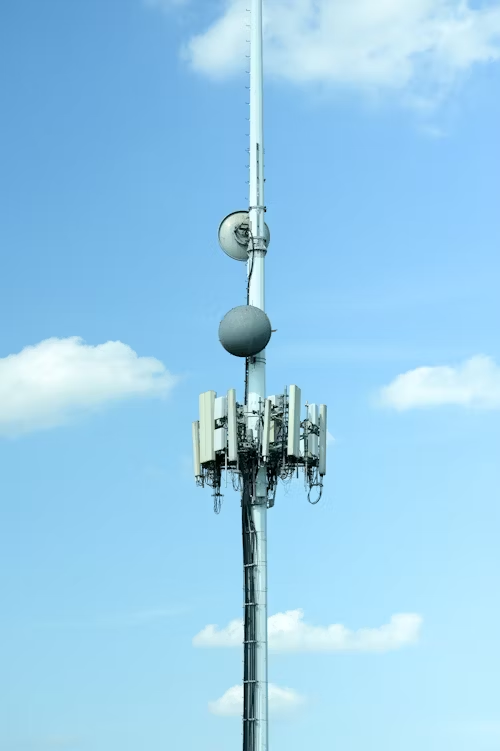So you’re tired of all your current internet service providers? Or maybe you’re just so tired of buffering videos, crashed Zoom meetings, or molasses-slow-loading pages? I get it, you’re just so tired when your internet’s slower than a snail. But hold on! What we are doing here is guiding you through the entire process of how to get the best internet provider out there step by step guide to the get the best.
Why Choosing the Right Internet Provider is Important
Before we talk about the best internet providers, its important to know why it’s best you chose the right one. Your internet carrier impacts almost everything you do on a daily basis, whether you work from home, stream movies online, play video games online, or even read your social news feeds.
A bad internet carrier will mean
- Slow speeds which will make browsing boring.
- Frequent disconnections (especially when you need it most).
- Hidden fees that make your bill way higher than expected.
- Poor customer service that leaves you hanging when problems arise.
And, on the other hand, the good carrier will give you:
Fast and reliable speeds for whatever it is that you need.
Top-notch customer service when network is glitching.
A low price that will give you everything you need.
Sound great right? Let us take a look at choosing the best network provider now.
You Can Also Read: Why James Bond Amazon Prime Deal Will Be A Good Thing
How to Select the Best Internet Provider to Fit Your Needs
There is no one-size-fits-all answer since we all don’t have same needs, what I want might not be what you need.. What will be the most ideal connection for a gamer will not be the most ideal for the individual who merely emails and YouTubes occasionally.
What you must remember:
1.What is working well in your area?
Not every provider operates in every location. You might hear about an amazing internet deal, only to find out it’s not available where you live.
How to go about it?
Look on sites such as BroadbandNow to check what Internet Service Providers will work well in your area.
Discuss with your neighbors or whoever is closer to you what they use and if the network is working smoothly.
2. Choose How Much Speed You Actually Need
Speed is important, but you don’t needn’t to rush in getting any network at all because it’s browsing fast.
Here’s a rough guide based on how you use the internet:
Light use (1-2 people): If you just browse the web, check emails, and use social media, 10-25 Mbps will be enough for you.
Streaming & Work From Home (2-4 users): In case you’re streaming Netflix HD, attending Zoom meetings, or working from home, grab 50-100 Mbps at minimum.
Gaming & Heavy Use (4+ people): If multiple people are gaming, streaming in 4K, or using smart home devices, go for 200+ Mbps.
f you’re always experiencing lag, your issue might not be speed—it could be WiFi coverage. A mesh WiFi system can help improve signal in your home.
3. Compare Prices and Hidden Fees
Internet promotions are misleading. Their special promotional rate might not be what you will pay.
What to remember:
Installation charges (they will make you pay $50-$100 for installation).
Equipment rental fees (modems and routers will cost you $10-$20/month).
Promotional deals (that $29.99/month deal? It will rise to $59.99 in a year).
Data caps (some ISPs will raise the price if you exceed your data limit).
What to do best? Read the terms and conditions and ask customer service about long-term pricing before signing up.
4. Find Customer Feedback and Support
Even the fastest internet isn’t worth it if customer service is terrible. Imagine your internet goes down, and you can’t get help for days….. no thanks!
How to check if an ISP has good customer service:
Google feedbacks and reddits mostly give real experience stories.
Call customer support before signing up to see how helpful they are.
J.D. Power rates for customer satisfaction ratings.
Best Internet Providers�
There are many providers, but here are some of the best ones in the U.S. based on reliability, speed, and customer service:
1. Xfinity (Best by Speed & Availability)
Pros: Very fast speed, available nearly everywhere, low bundle prices
Cons: Very expensive after promotional period, data cap
2. AT&T Fiber (Best for Fiber Internet)
Pros: No data cap, excellent speed, very reliable
Cons: Not available for some cities
3. Verizon Fios (Best Customer Service)�
Pros: Excellent speed, good service, no contract
Cons: Not available everywhere
4. Spectrum (Best No-Contract Plan)
Pros: No contracts, fast, no data cap
Cons: Very expensive in the long term
5. T-Mobile Home Internet (Best Rural Plan)�
Pros: No data limit, easy installation, affordable
Cons: Based on signal speed
Secrets to Getting the Best Internet Plan
Negotiating Your Rate: There are companies that will negotiate if you call them and inform them that you are cancelling your contract so you can sign up with their competitor.
Special Offers: Some Internet service providers offer special offers such as free installation, sign-up bonus or gift cards.
Extras Discounts Ask: Make sure extra fees such as modem rental or cancellation fees are not charged.
Bundle: If you also want TV or phone service, bundling will be more economical.
Trending Questions
1. What is the best internet connection
Best is fiber internet (e.g., AT&T Fiber or Verizon Fios) because it’s extremely fast and stable. Second best is cable internet (e.g., Xfinity or Spectrum) otherwise. DSL and satellite are slower but might be the only options in rural areas.
2. Do I really need unlimited data?
It depends! If you stream a lot of 4K videos or game online, unlimited data is a good idea. But for light browsing, a data cap of 1TB is usually enough.
3. Can I use my own router and modem?
Yes! Most ISPs actually do allow you to use your own device, and also, you save some rent money too. Just bring one compatible modem with their service along.
4. How do I boost my home WiFi signal?
Do the following:
Place your router in the center of the room.
Implement a mesh network or WiFi repeater.
Restrict microwave, wall, and Bluetooth device interference.
Conclusion
Choosing an internet provider doesn’t have to be overwhelming. The key is to focus on what you need—whether it’s speed, affordability, or reliability.
Look out for the following:
- Check what providers works best in your area.
- Choose the right speed for your household.
- Compare pricing and avoid hidden fees.
- Read reviews to see how reliable the service is.
Reference
Federal Communications Commission (FCC)
HOT Picks
Top 10 Cheapest Laptops in 2025



